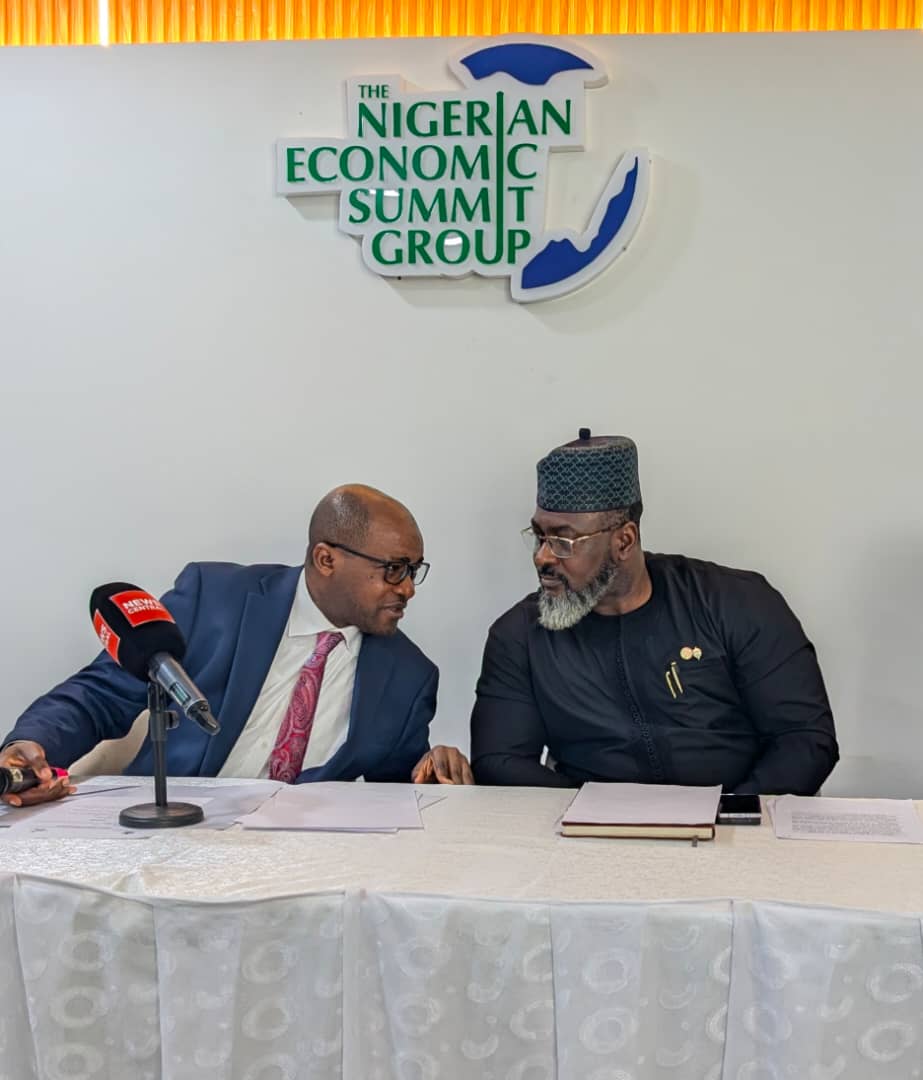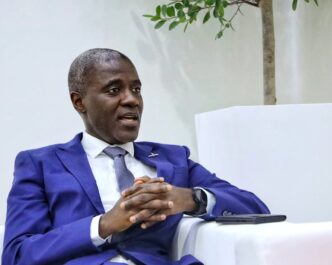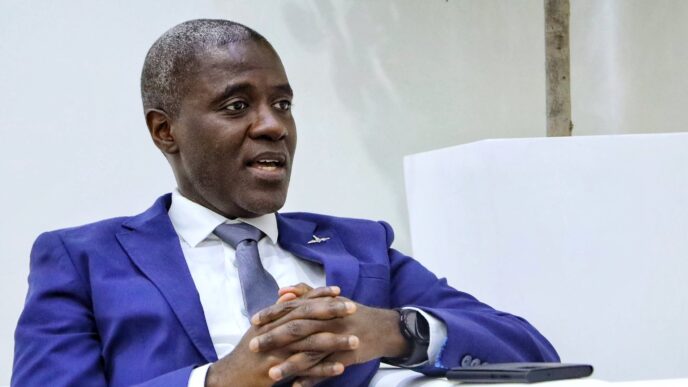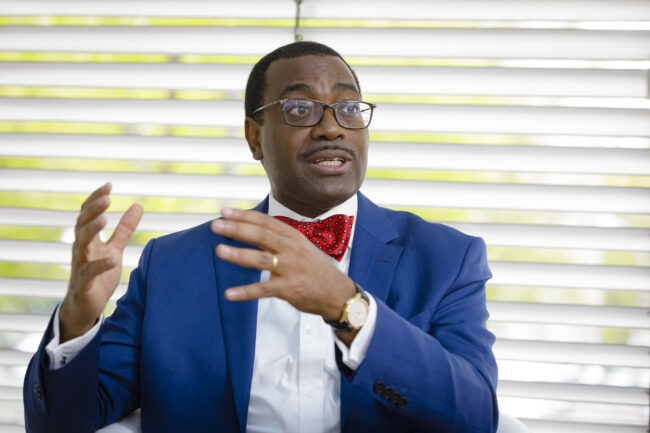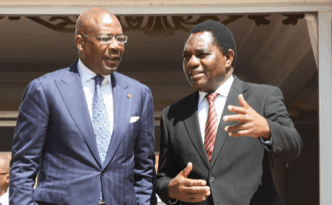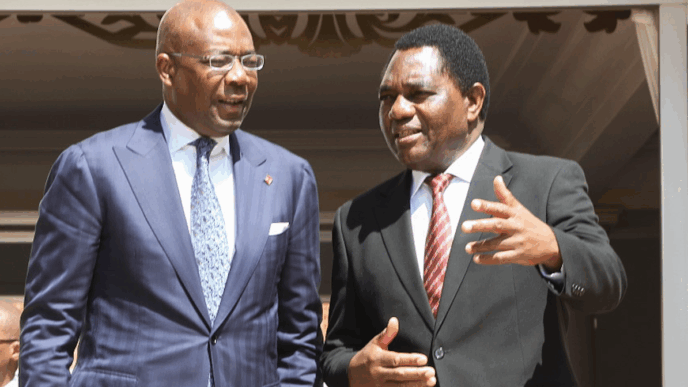L-R: Niyi Yusuf, chairman of the NESG, and Tayo Aduloju, the chief executive officer of the NESG
The Nigerian Economic Summit Group (NESG) has announced plans to hold its 31st annual summit to discuss the country’s economic future beyond achieving stability.
According to the NESG, the Nigerian Economic Summit (NES31) is scheduled to hold from October 6 to 8 in Abuja.
Speaking at a press conference in Lagos on Tuesday, Niyi Yusuf, chairman of the NESG, said this year’s summit, themed ‘The Reform Imperative: Building a Prosperous and Inclusive Nigeria by 2030,’ is a statement of urgency, a reflection of the state of the nation, and a call to action on what must be done if Nigeria is to truly prosper.
“Over the last three decades, the Nigerian Economic Summit and the NESG have journeyed through five defining phases, each reflecting the state of our economy, the maturity of our policymaking culture, and the resilience of our institution,” he said.
Advertisement
“From the pre-NESG years of economic collapse and state capture, to the infancy of a closed economy, to the early opening up of reforms in the 2000s, to the traction of Vision 20:2020, and the volatility of recent years marked by two recessions and a pandemic, the NES has remained a constant platform for setting national priorities, pushing evidence-based reforms, and building consensus between government and the private sector.
“At every turning point, whether through shaping landmark reforms in pensions, telecoms, agriculture, and energy, or providing the blueprint out of recession in 2016, the NESG has stood firm as Nigeria’s leading dialogue platform for charting a sustainable path forward.
“As we move into the Agenda 2050 era, the lessons of these 30 years are not just history, they are a call to action. The Nigerian Economic Summit has shown that even in the face of volatility, evidence-based dialogue and courageous reform can redirect the course of a nation.
Advertisement
“Today, we must sustain this momentum, deepen the culture of collaboration, and commit to the structural reforms that will define Nigeria’s next three decades. Our task at NES#31 is clear: to translate resilience into renewal, and reforms into real, inclusive prosperity for every Nigerian.”
‘REFORMS ALONE WILL NOT DELIVER THE 2030 NIGERIAN DREAM’
Yusuf explained that over the past two years, Nigeria has embarked on bold reforms, notably the removal of petrol subsidy and the harmonisation of foreign exchange (FX) rates, but the reforms alone are not sufficient to deliver the 2030 envisioned Nigeria.
“These were not easy decisions. They demanded courage from government, resilience from citizens, and sacrifice from businesses. But as global institutions such as the World Bank have already confirmed, these reforms have begun to yield results: narrowing fiscal deficits, injecting a measure of stability into our economy, and creating the conditions for future growth,” he said.
“Yet, if we pause and look deeper, one truth becomes clear: stability is not the destination; it is only the starting point. The reforms of 2023 and 2024 gave us breathing space, but they will not, on their own, deliver the Nigeria we envision by 2030.
Advertisement
“What is required now is a second wave of reforms—structural, deliberate, and transformative—that move us from crisis management to long-term nation building. The new Tax Acts that will come into effect in 2026 are a good start and this is why The Reform Imperative is not a choice, but a necessity.
“The Nigerian Economic Summit Group has, through years of research, dialogue, and policy engagement, consistently highlighted the bottlenecks that constrain our growth.
“Our reports on the business environment tell us that without industrialisation, competitive infrastructure, inclusive growth, strong institutions, and bold investment strategies, Nigeria will continue to circle the same mountain of low productivity and high vulnerability.”
Yusuf said the summit is built around five priorities — driving industrialisation-led growth, building infrastructure for competitiveness, advancing inclusion for shared growth, strengthening institutions for sustainable impact, and unlocking investment amid global trade shifts.
Advertisement
The chairman added that the focus will be anchored on reforms, resilience, and results to turn Nigeria’s fragile stability into sustainable prosperity.
Also, Tayo Aduloju, the chief executive officer (CEO) of the NESG, reiterated that the summits have consistently proven the power of evidence-based dialogue to redirect the course of the nation.
Advertisement
Adeloju said the dialogue from previous summits has shaped reforms that transformed the pension and agriculture sectors, provided blueprints during economic recessions, and has been instrumental in fostering policy innovation, as well as strengthening public-private partnerships (PPP), and deepening collaborative nation-building.
“As we enter the Agenda 2050 era, NES#31 must help us sustain this momentum and translate resilience into renewal,” he said.
Advertisement
The CEO also said the upcoming summit represents a defining moment to consolidate reforms, address the constraints to investment, production and productivity, and set Nigeria firmly on the path to achieving the aspirations of Nigeria Agenda 2050.
During his address at the press conference, Abubakar Bagudu, the minister for budget and economic planning, said the themes of the summit mirror the federal government’s medium and long term objectives of sustainable development, poverty reduction, and inclusive prosperity.
Advertisement
Bagudu, who was represented by Felix Okonkwo, director of macroeconomic analysis at the federal ministry of budget and economic planning, also said recent policies have begun to improve Nigeria’s fiscal position, debt sustainability, and investor confidence.
The minister described the gains as “signals that Nigeria has chosen the right path,” adding that reforms must be sustained as a process, not an event.
Bagudu also stressed the importance of targeted programmes in agriculture, education, health, and social protection to ensure that vulnerable populations are not left behind.
